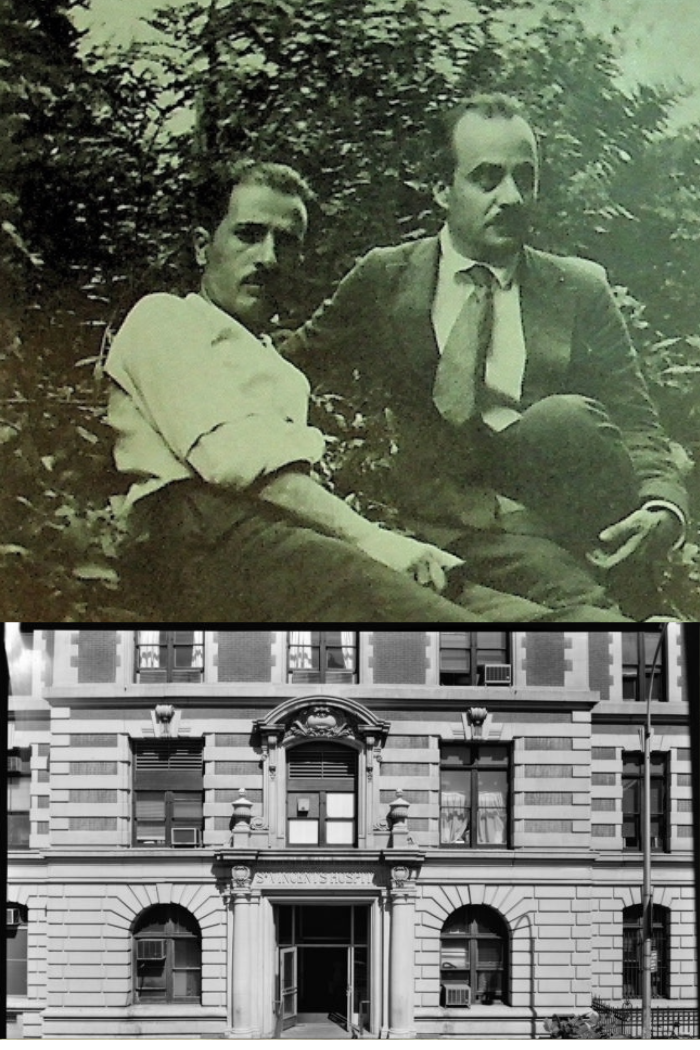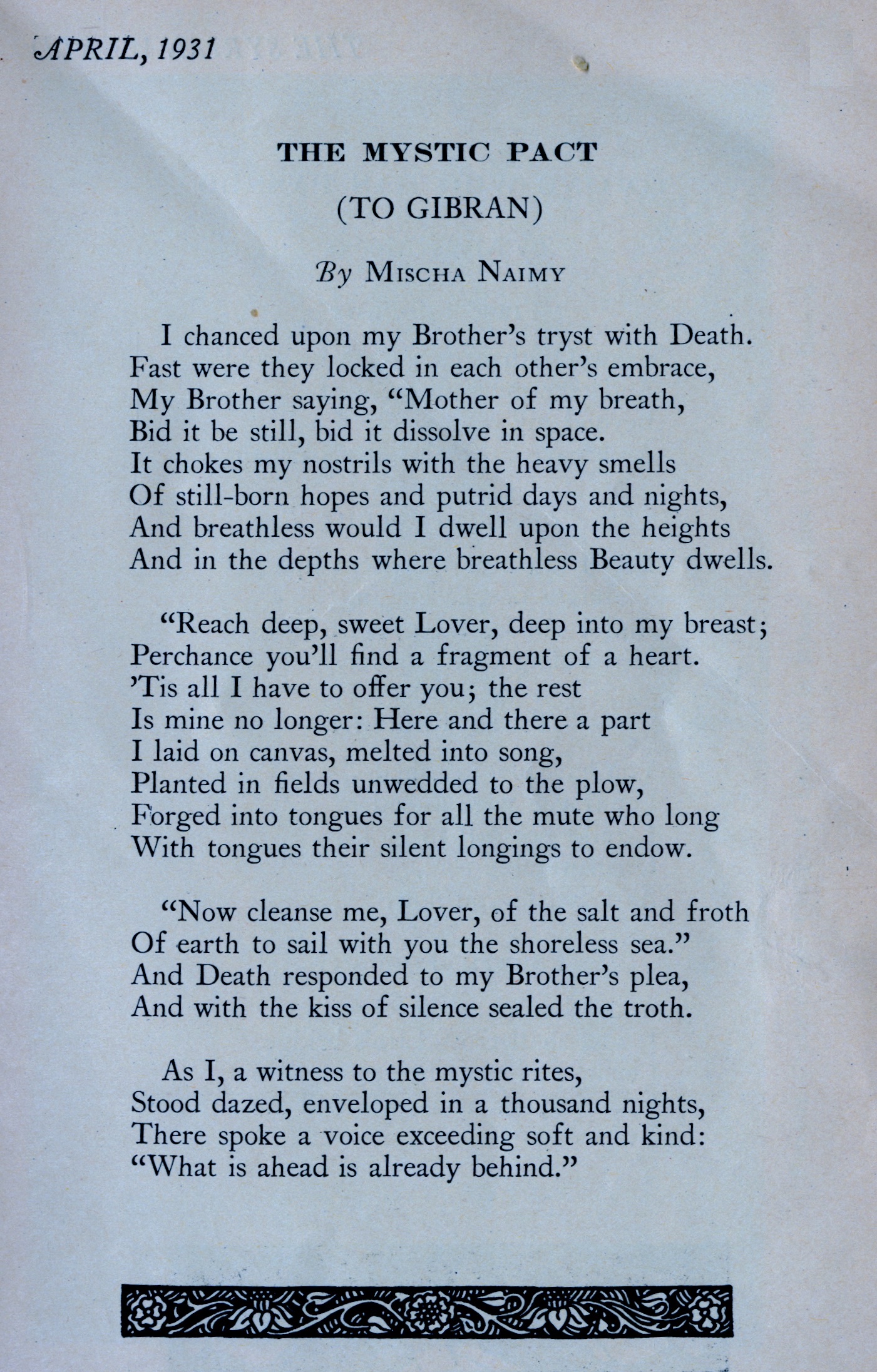-
-
-
-
Search
-
-
0
-
Shopping Cart
xProducts:0Cart Empty
-
by Francesco Medici and Glen Kalem-Habib
all rights reserved © copyright 2024 Francesco Medici and Glen Kalem-Habib
Kahlil Gibran’s departure from this world on April 10, 1931, marked the end of an era, leaving behind a profound void in the hearts of those who cherished his wisdom. Mikhail Naimy, a trusted confidant and friend, bore witness to Gibran’s final moments at St. Vincent’s Hospital in Manhattan.

In his autobiography, Seventy, Naimy eloquently recounts the sombre yet transcendent atmosphere that enveloped Gibran’s bedside during those last hours.
I accompanied Gibran on his death bed during his last five hours, which seemed like five centuries, and I closed his eyes shut with my own hands when he breathed his last breath. All this I did without shedding one tear because I am a firm believer that the moment of death is but the moment of labor pains of a new birth, and that death is but another stage of life’s many phases. If you believe in this, then what is the value of the tears that we shed on the dead?[1]
On April 29, 1931, friends and admirers gathered at Roerich Hall in New York to honor Gibran’s memory. Among them, Naimy stood, offering a poignant tribute to the indomitable spirit of his dear friend. With reverence and grace, he recited a poem that captured the essence of Gibran’s enduring legacy – a testament to his unwavering commitment to truth and beauty.
The Mystic Pact
(To Gibran)
I chanced upon my Brother’s tryst with Death.
Fast were they locked in each other’s embrace,
My Brother saying, “Mother of my breath,
Bid it be still, bid it dissolve in space.
It chokes my nostrils with the heavy smells
Of hopes still-born, of putrid days and nights;
And breathless would I dwell upon the heights
And in the depths where breathless Beauty dwells.
“Reach deep, sweet Lover, deep into my breast;
Perchance you’ll find a fragment of a heart.
’Tis all I have to offer you; the rest
Is mine no longer. Here and there a part
I laid on canvas, melted into song,
Planted in fields unwedded to the plow,
Forged into tongues for all the mute who long
With tongues their silent longings to endow.
Now cleanse me, lover, of the salt and froth
Of earth to sail with you the shoreless sea.”
And Death responded to my Brother’s plea,
And with the kiss of silence sealed the troth.
As I, a witness to the mystic rites,
Stood dazed, enveloped in a thousand nights,
There spoke a voice exceeding soft and kind
“What is ahead is already behind.”[2]
The poem was first published that same month of April in the magazine “The Syrian World” and then included in 1950 in Naimy’s Kahlil Gibran: A Biography (translated into English by the author from his own previous 1934 Arabic version). Through his words, Naimy sought to encapsulate the essence of Gibran’s boundless wisdom and profound insights, ensuring that his legacy would endure for generations to come.

[1] Mikhail Naimy, Sab’un (Seventy): An Autobiography, Selections Translated into English with an Introduction by George Nicolas El-Hage, Ph.D., 2020, p. 320.
[2] Mischa Naimy, The Mystic Pact, “The Syrian World”, Vol. V, No. 8, April, 1931, p. 41 (cf. Mikhail Naimy, Kahlil Gibran: A Biography, with a preface by M.L. Wolf, New York: Philosophical Library, 1985, p. 262).